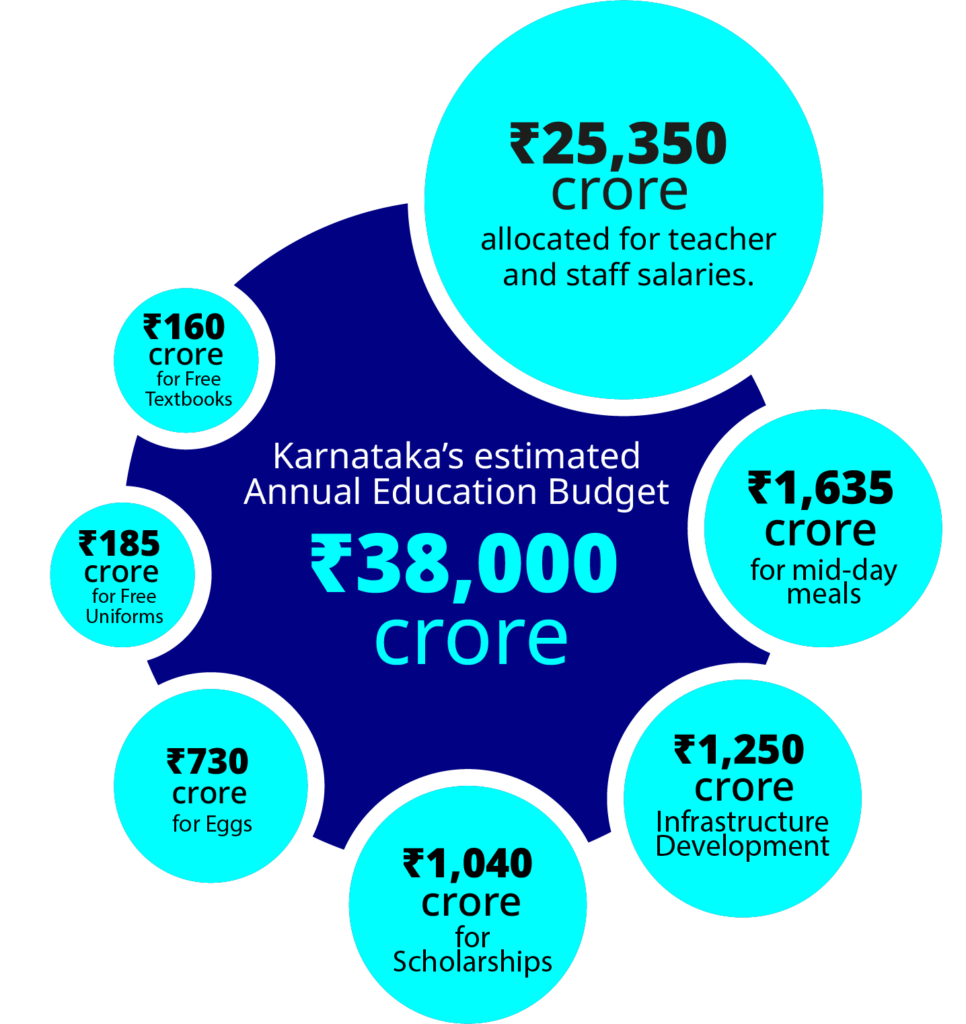The Karnataka government is actively considering a significant increase in Corporate Social Responsibility (CSR) spending within the education sector and the skilling of youth across the state. For the upcoming fiscal year 2023-2024, the government has outlined a projected CSR requirement of around ₹2,854 crore.
This allocation aims to address various critical needs within the education sector. These include the establishment of solar-powered smart classrooms in schools, the implementation of “skills on wheels” programs in 1027 schools across 25 districts, the creation of classrooms and skill laboratories in 99 polytechnics and 11 engineering colleges, and the establishment of 6,000 multi-skills labs. Furthermore, the allocation seeks to provide teaching support, supplementary nutrition for school children, and opportunities for apprenticeships and internships in approximately 59,000 establishments.
To enhance the learning environment, the government is also focusing on initiatives such as the development of digital libraries, upgrading existing libraries, and providing sports equipment to schools. Additionally, the allocation includes provisions for addressing technology shortages, such as donating used/old PCs and laptops to overcome desktop shortages in 2,275 schools and laptop shortages in 1,600 secondary schools.
Analysis of CSR spending trends from 2016-2017 to 2020-2021 reveals that over 50% of CSR funds were allocated to the education sector. The government aims to further engage with corporate entities to increase contributions towards improving education.
Data indicates that out of the total ₹5,705 crore received as CSR between 2016-2017 and 2020-2021, ₹2,940 crore was directed towards education, while ₹1,517 crore and ₹822 crore were allocated to the health and environment sectors, respectively.
Notably, Karnataka received ₹1,278 crore in CSR funding during the 2020-2021 period, positioning it as the third-highest recipient in the country after Maharashtra and Gujarat. It is anticipated that approximately ₹2,000 crore in CSR funds will be due for the period leading up to 2023. This demonstrates a consistent increase in CSR funding since the initial influx of ₹876 crore in 2016-2017.

Preceding the CSR conclave themed “Education – Make a Social Impact,” scheduled for Friday, the government has compiled data outlining the challenges faced within the education sector. The state’s estimated annual education budget stands at around ₹38,000 crore, with a significant portion of approximately ₹25,350 crore allocated for teacher and staff salaries. Other allocations include ₹1,635 crore for mid-day meals, ₹730 crore for eggs, ₹185 crore for free uniforms, ₹160 crore for free textbooks, ₹1,040 crore for scholarships, and ₹1,250 crore for infrastructure development.